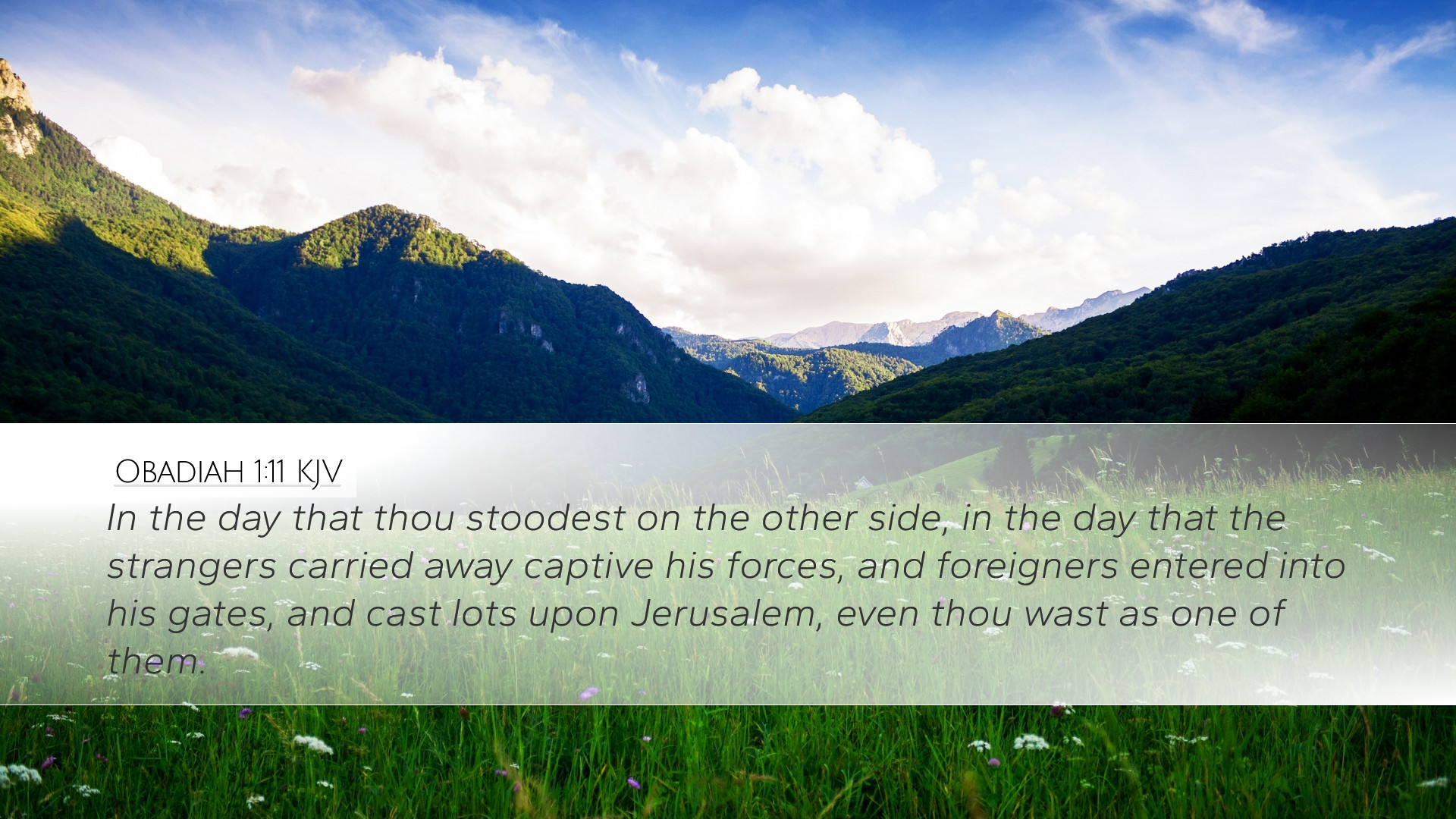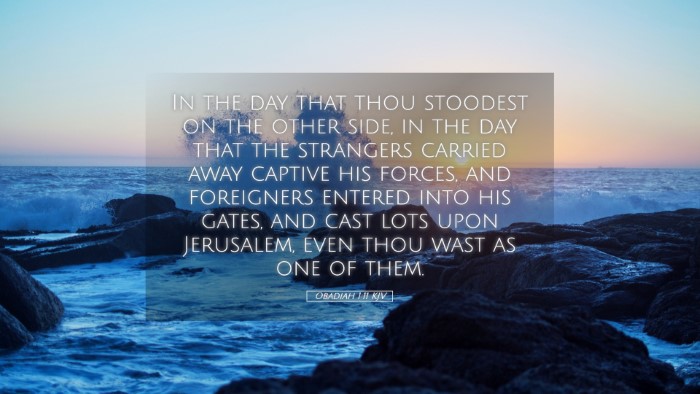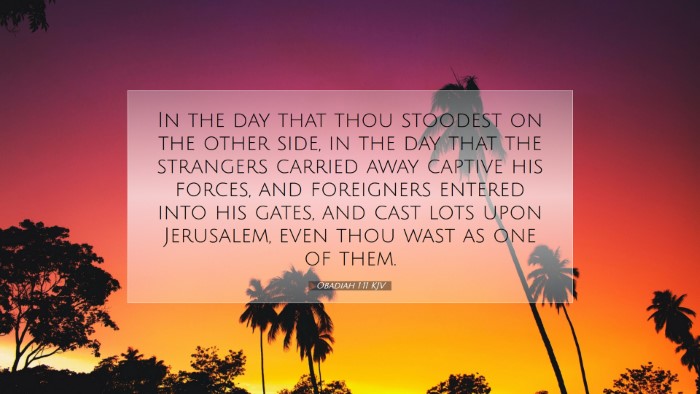Commentary on Obadiah 1:11
Introduction
The book of Obadiah, the shortest book in the Old Testament, presents a vivid picture of God's judgment against Edom for their pride and violence toward Israel. Obadiah 1:11 exposes a particular moment of betrayal during the calamity of Jerusalem, offering rich insights for pastors, theologians, and scholars alike.
Verse Analysis
Obadiah 1:11 (ESV): “In the day that you stood aloof, when strangers carried off his wealth and foreigners entered his gates and cast lots for Jerusalem, you were like one of them.”
Contextual Background
This verse dwells on Edom’s passive complicity during the siege and destruction of Jerusalem. Rather than assisting their brother nation, they took a stance of indifference. Their refusal to act against injustice signifies a profound moral failing, reflective of prideful arrogance.
Commentary Insights
-
Matthew Henry:
Henry emphasizes the concept of standing aloof, noting that Edom’s lack of action was as culpable as overt aggression. Their inaction during Judah's hour of trial was a violation of the brotherhood that existed between them. Obadiah’s prophecy serves as a reminder that failing to help in a time of need is an act of great betrayal, equating to complicity in the suffering of others.
-
Albert Barnes:
Barnes brings attention to the phrase “stood aloof,” implying a conscious choice to remain uninvolved amidst chaos. He highlights the irony of Edom’s position as they were beneficiaries of Judah's misfortunes, illustrating the broader spiritual principle that nations or individuals that remain indifferent during another's distress ultimately invite God’s judgment upon themselves.
-
Adam Clarke:
Clarke interprets the action of strangers carrying off the wealth and entering the gates of Jerusalem as indicative of the spiritual and societal collapse. He studies the cultural implications of the Edomites' behavior, pointing out that their failure to defend their kin reflects deeper issues of identity and loyalty tied to egoistic motivations. Clarke argues for the theological interpretation that God’s judgment upon Edom serves as a historical warning to all nations regarding the consequences of moral negligence.
Theological Implications
The implications of Obadiah 1:11 extend beyond historical context into moral and ethical dimensions for contemporary readers. Here are several key reflections:
- Indifference to Injustice: The verse serves as a poignant reminder of the need to act against injustice. It charges individuals and communities with the responsibility to ensure their inaction does not contribute to the suffering of others.
- The Nature of Brotherhood: As a reflection on the relationship between nations and among people, it emphasizes that familial and national ties bring responsibilities that transcend personal interests.
- Divine Justice: The broader context of Obadiah's prophecy reminds us that God observes human behavior and judges not only actions but also the attitudes behind them. Indifference can be just as grievous as active participation in wrongdoing.
Application for Ministry
This passage holds significant implications for pastoral care and church ministry:
- Encouragement of Community Action: Pastors should foster a sense of community responsibility among congregants, encouraging initiatives that reach out to those who are suffering and in need.
- Teaching on Moral Responsibility: There is an opportunity to engage in teaching that addresses the importance of standing against injustices in society, helping congregants to understand their call as moral agents.
- Awareness of Historical Context: When preaching or teaching from prophetic texts, it is vital to draw connections between historical contexts and contemporary issues, showing that Scripture’s relevance spans time.
Conclusion
In conclusion, Obadiah 1:11 is a powerful reminder of the responsibilities we bear towards one another as members of the human family. Through the lens of public domain commentaries, we glean a deeper understanding of the consequences of indifference and the call to justice. As we reflect on this text, may it inspire a commitment to act with love and compassion in our daily lives, acknowledging the ever-watchful presence of divine justice.


